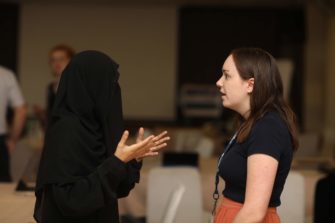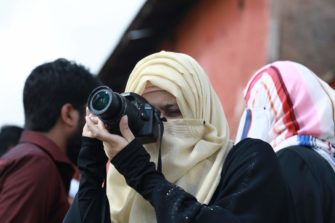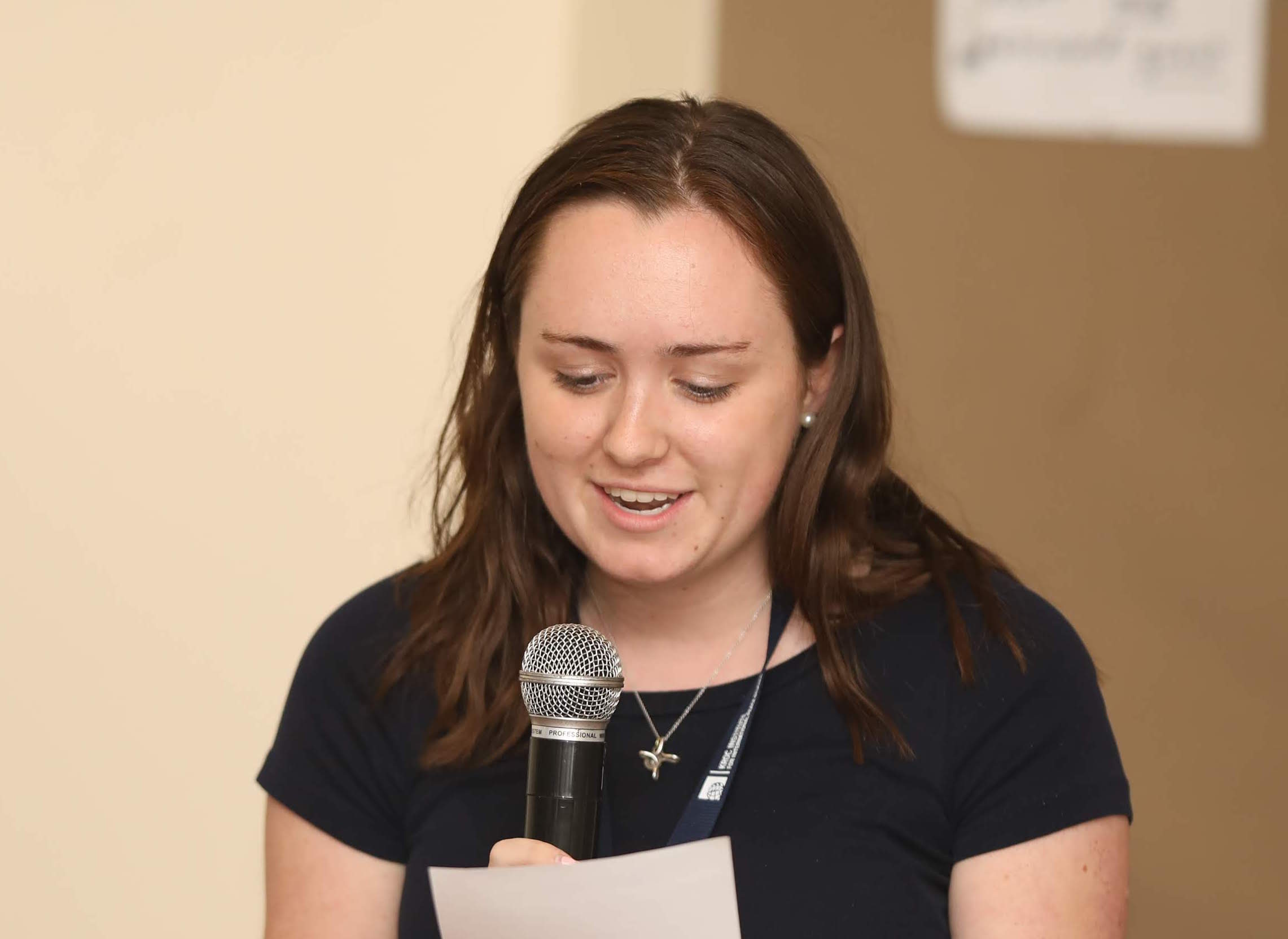
Before I departed for the Madrasa Discourses intensive in Kathmandu, my dad gave me a gift, a copy of his favorite book, The Razor’s Edge. This book tells the story of an American man, Larry Darrell, who chooses to forsake all worldly material possessions in favor of seeking sainthood, enlightenment, and the true meaning to life. Although Larry travels to India to find his “true self,” my dad thought it was perhaps close enough of a cultural experience with which to send me off. There was one rather long quote in the beginning of the book that immediately jumped out at me and stuck with me for the remainder of the trip:
“For men and women are not only themselves, they are the region in which they are born, the city or apartment or farm in which they learn to walk, the games they played as children, the old wives tales they overheard, the food they ate, the schools they attended, the sports they followed, the poets they read, and the God they believed in. It is all these things that have made them what they are and these are the things that you can’t come to know by hearsay.”
One of the core principles of Catholic Social Teaching I have encountered at Notre Dame stresses the vital importance of recognizing the life and dignity of every human person. As Catholics, we passionately believe that all people are created in the likeness and image of God and should be respected as such. With this principle in mind and The Razor’s Edge in hand, I exited the plane with an open heart and a desire to learn the things about people that cannot be learned from hearsay.
Throughout my two weeks in Nepal I was blessed to forge wonderful new relationships with people from India, Pakistan, South Africa, Germany, the U.S, and Nepal. Of all of these new friendships, none were as strong as those which I had with my roommates. My two roommates, sisters-in-law from Pakistan, broke down the misconceptions that I had about Islam. These misconceptions are ones that seem to be very prevalent in the U.S.—the narrative that all Muslims are terrorists and that Muslim women are restricted by men in everything that they wish to do. My roommates taught me that Islam is a faith of mercy and grace but just like every faith, radical actors can twist it to inflict horrible pain upon others.

The first thing that my roommates taught me was the traditional greeting among Muslims, “Assalamu Alaikum” which translates to “peace to you.” The common response to this greeting is, “Wa-Alaikum-Salaam” which translates to “and unto you, peace.” This exchange was immediately all too familiar, nearly identical to one that I utter in a Church every time I celebrate Mass. The one stark difference between my utterance of these phrases and my roommates’ was that I never wished peace to others outside of the confines of the church, outside of eyesight of Christ in the Tabernacle. I always held Christianity to be a faith led by a search for eternal and earthly peace, but the reality is that Islam as I experienced it may present peace in an even more vivid way. I thought it was quite wonderful that every interaction between the Madrasa students that I witnessed began with this exchange—an exchange of well wishes and a way to share your faith in God with others.
My roommates and I would stay up all hours of the night debating American politics, the concept of “love” marriages versus arranged marriages, college life in the U.S, and of course, faith. It did not take too extensive of an exegesis of the Bible and the Quran for us to realize that our two faiths really are not that starkly different. Every day we pointed out more similarities between our two faiths, and so soon enough the question emerged: Why does society tell us that we are two polar opposites? It was at this point that I remembered the words from The Razor’s Edge, that you cannot know the things that make people who they are by hearsay. It became apparent that my perception of Muslims up until this point had all been hearsay.
I had never been to a mosque before this trip, nor had I ever seen traditional Muslim prayer. Growing up in New York City after September 11, 2001, the narratives about Islam that were shared with me my entire life were ones of extremism and terrorism. Yet the Islam I encountered in Kathmandu is a faith of peace, mercy, and grace, just as we like to believe that Christianity is. If the tides had been turned and Christianity had been labeled the “terrorist” faith, how would the world look and how would I have responded?
My roommates and I realized that the only way people of our two faiths would begin to work together is when the barriers built on misconceptions and media distortion are broken down. Rather than being separated by a wall of hearsay, we must learn to walk on the same path of spiritual, philosophical, scientific, and global inquiry that is paved by the acceptance of cultural and religious diversity.

The incredible women that I met at Madrasa Discourses challenged my notions of what it means to be a feminist, an advocate for others, and a woman of faith. My roommates and I talked at length about the issues that we are passionate about and the ways we think we should resolve them. For example, on and off campus, I am engaged in advocacy work regarding Title IX and campus sexual violence. I have always used my Catholic faith as my motivation for wanting to devote my time to helping others live a safer, more equitable life. Similarly, to me the concept of the burqa as a symbol of freedom and liberation was completely novel, but began to make more sense after I listened to my roommates more over the two weeks.
In many advocacy communities in the United States, including some with which I am involved, faith is often not spoken about. Because faith has been used as a weapon against people and their self-identification in the past, many advocates disregard faith as a conduit for advocacy work and in turn disregard those advocates who wish to use their faith to promote their cause. Similar to the advocacy community more generally, proponents of feminism in the U.S. often shun religion, as many people view religion as a practice particularly restrictive to women. Through our discussions, I realized that I—and my roommates in Kathmandu—lie at the crossroads of these different approaches to advocacy. I was so grateful that we could have such an open conversation about faith, activism, and feminism, and I left Nepal with a desire to dive into my faith deeper and to explore the role of women in halting the spread of hearsay that causes us to distort our vision of each other.
As I sat on the plane from Kathmandu to the U.S., I opened up my copy of The Razor’s Edge and turned to that quote that started it all. I smiled, knowing that this experience had truly taught me that I cannot live a life based on hearsay. Rather, I must engage with others no matter how different their backgrounds may seem to mine. It is only when we are willing to become vulnerable, to let our guard down, and to let in the thoughts and experiences of others that we will truly learn how to reflect God towards each other.
To my wonderful roommates, who taught me what it actually means to be a Muslim and how faith can be a powerful tool for uplifting the voices of women and challenging the one-sided narrative of other cultures, I wish to you, Assalamu Alaikum.

